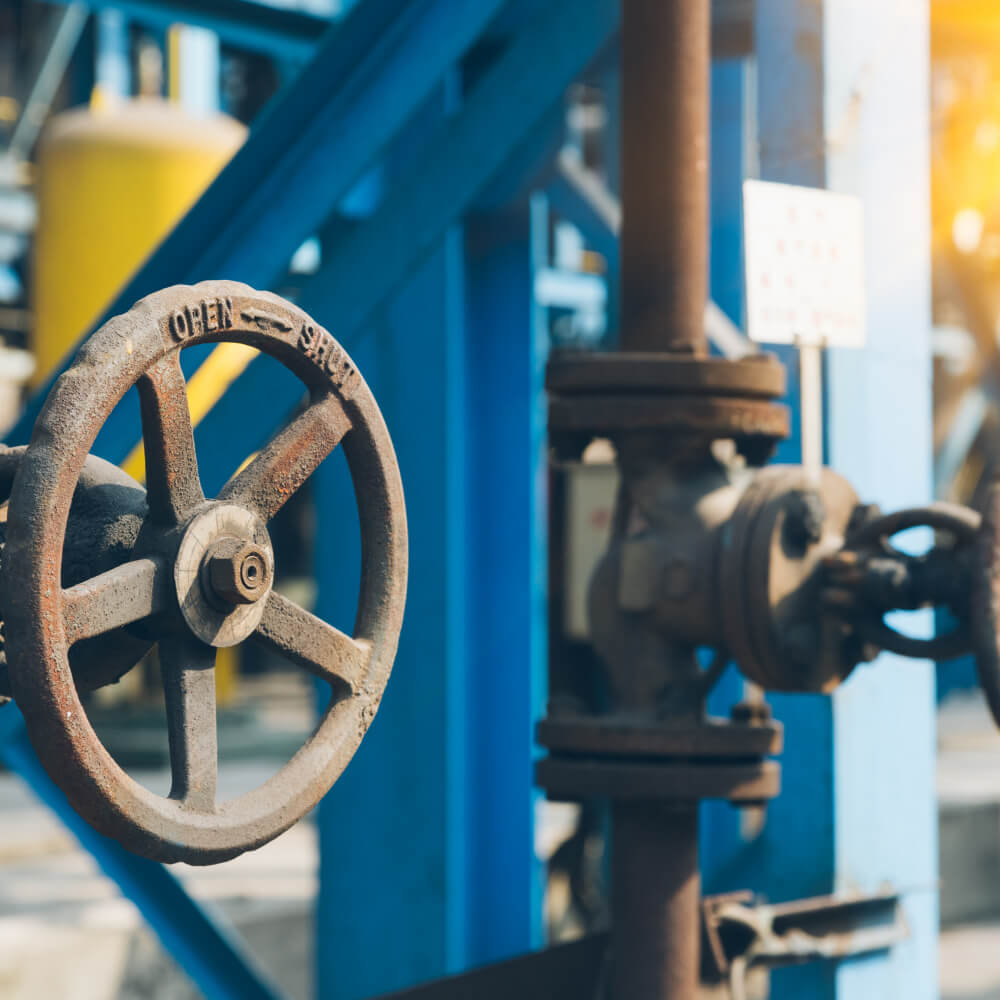Alloy material for industrial and construction valves
Various metal alloys are used in the construction of valves that are used in various piping systems. Each of the alloys of industrial and construction valves have unique characteristics and properties. There is not much difference between the alloy of industrial and construction valves.
In fact, you can find a wide variety of faucets in the market. Of course, the choice of material for industrial valves is more sensitive due to the flow of highly sensitive fluids. All kinds of alloys are used in making valves.
What is the material of industrial valves?
Metal alloys are divided into ferrous and non-ferrous groups. The most important alloys used in the manufacture of industrial and non-industrial valves include the following:
Carbon steel alloy
Steel is an alloy of iron whose main chemical composition is carbon. This type of valve alloy is mainly used in the oil and gas industry for fluids with high temperature and pressure.
Industrial steel valves are made by two methods: forging and casting. Valves produced by forging usually have higher quality than cast types. Because in forged valves, better engineering standards are met.
The main advantage of choosing steel as an alloy for industrial valves is its reasonable price. The only important thing about carbon valves is that they are highly sensitive to corrosion. To deal with this issue, protective coatings are often used. Reading the types of carbon steel can help you learn more about this steel.
Stainless steel alloy
Stainless steel, also known as stainless steel or steel in the market, is an iron alloy containing at least 10.5% chromium, which has excellent corrosion resistance. If you choose the alloy of industrial valves made of various types of stainless steel, you can take advantage of its good features. Benefits such as:
- Appearance beauty
- Good washing ability
- Excellent corrosion resistance
- Optimal strength
The material of industrial valves made of this type of steel is considered a self-healing material. That is, in case of scratches or damage to the surface of industrial valves and pipes, chrome reacts quickly and prevents the contact of corrosive materials with iron and rust.
Stainless steel alloy has become very popular in recent years and is considered one of the most popular materials used for the construction and design of faucets.
The price of steel is one of the obstacles that, despite all the advantages and excellent features, may discourage the buyer. If you see the daily price of steel on the Aeromart site, you will understand how the dollar rate affects the fluctuations of this alloy.
Nickel alloy
Nickel alloys are always used in places that need to withstand harsh and severe conditions. This type of alloy is very efficient against corrosion in harsh environments and shows high resistance.
Due to their high durability, nickel alloys are the most commonly used materials for industrial valve alloys. However, due to its high cost and weight, the use of this type of valves is decreasing.
Titanium alloy
Titanium is considered one of the best types of construction valve alloys because it has the highest strength-to-weight ratio compared to other valves used in construction.
Titanium alloys show high resistance to corrosion due to the presence of a large amount of protective oxide on their surface, and therefore, they have many applications in coastal areas.
Although titanium is one of the best alloys for industrial valves, it is not economical in all applications due to its extremely high price. Of course, note that producing faucets with titanium can be challenging. Because the high reactivity of this metal makes casting more difficult.
Nickel aluminum bronze alloy
Aluminum-nickel bronze is one of the copper-based alloys, which has 10% aluminum, 5% nickel and 5% iron in its chemical composition. This alloy is very resistant to corrosion and is similar to titanium and shows high resistance, especially in environments with salty water.
The use of this material as a material for industrial valves has expanded a lot. Because this alloy is not as expensive as stainless steel alloys.
Brass alloys
The alloy material of industrial valves of this family is a combination of brass and bronze alloy. Brass faucets usually have threaded connections that are used in sizes from half an inch to 4 inches. But sometimes they are available in 4 inch and 5 inch sizes.
If you choose brass industrial faucet alloy, you will probably face sealing problems during installation. With the help of teflon tape, liquid teflon, hemp and paste, you can ensure the sealing of these joints.
Brass and bronze faucets have a beautiful and clean appearance, which makes them suitable for use in homes. The main application of this range of industrial valves is to transfer water at different pressures and temperatures. Also, brass valves have high resistance and durability against wear and tear.
Types of brass valves include slide valves, needle valves, one-way valves (automatic valves), gas valves, fire valves, etc., which are sold in different pressures.




